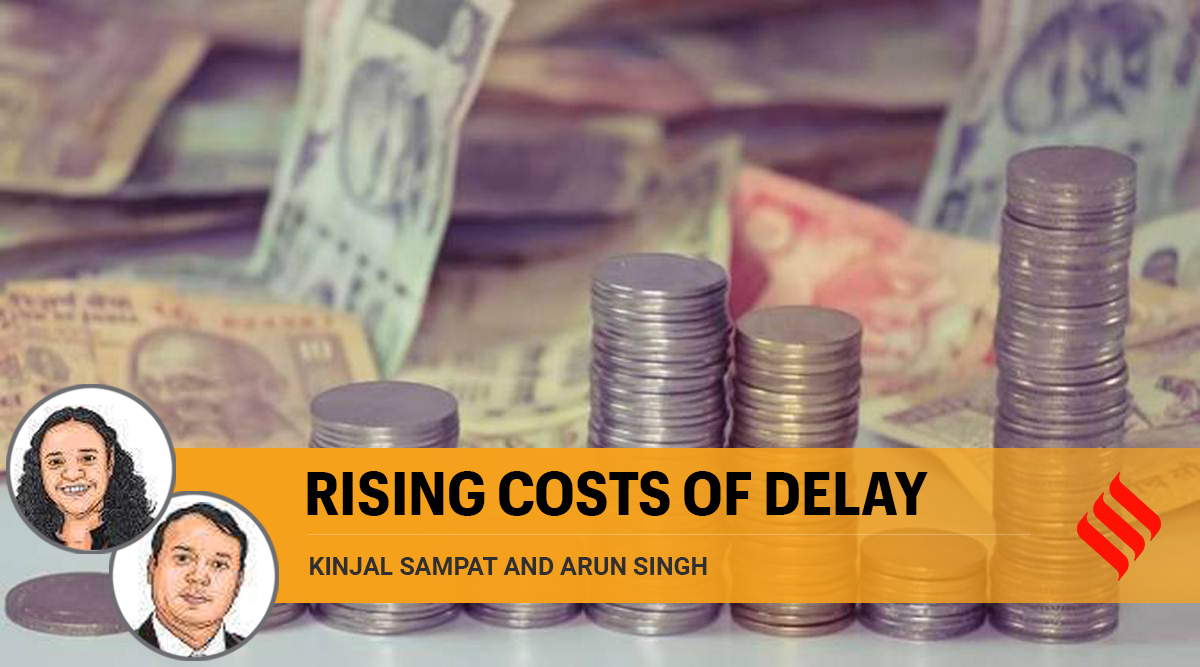Updated: July 9, 2022 9:05:32 am
 For every day that a payment is delayed, there is an erosion of value. It locks in capital that could have been deployed gainfully. The fact that this is a problem largely faced by cash-strapped and credit-starved MSMEs makes the erosion of value even more acute.
For every day that a payment is delayed, there is an erosion of value. It locks in capital that could have been deployed gainfully. The fact that this is a problem largely faced by cash-strapped and credit-starved MSMEs makes the erosion of value even more acute. Written by Kinjal Sampat and Arun Singh
“Who doesn’t?” was the unanimous response when we inquired about small business owners facing delays in payments. Anecdotal evidence overwhelmingly suggests that delayed payments to suppliers who are often MSMEs is a norm set by buyers who are often big companies and public sector units. Our estimates based on Dun & Bradstreet’s proprietary data and Prowess IQ suggest that payments worth Rs 6.3-10.7 lakh crore were delayed to MSMEs during 2020-21 with the average days for the delays for micro, small and medium enterprises estimated to be 194, 68 and 46 days respectively. (The wide range of estimates can be attributed to the different methodological approaches adopted.)
For every day that a payment is delayed, there is an erosion of value. It locks in capital that could have been deployed gainfully. The fact that this is a problem largely faced by cash-strapped and credit-starved MSMEs, makes the erosion of value even more acute. Micro and small enterprises borrow at comparatively higher costs and often operate in very competitive environments, surviving on razor-thin margins. In our interviews with entrepreneurs, the direct impact observed was that of foregoing business opportunities due to lack of liquidity. This is not just detrimental to the specific firm or enterprise but is a deterrent to the overall growth of MSMEs.
The other types of costs incurred by such supplier firms include the time spent and the personnel costs employed to recover payments as well as the business forgone due to disrupted cash flows. For instance, a distributor of processed food finds bearing the salary expenses of three full-time employees more cost-effective than bearing the interest and losses of delayed payments. The case is emblematic of the level of erosion of value to be expected from delayed payments.
Subscriber Only Stories
The issue needs to be addressed at multiple levels. First, a call from the highest levels of government is needed, that such delays are not in the nation’s interest. For the country to achieve economic progress, the MSME sector must grow. This kind of intervention should aim at changing the business culture and thereby strengthening all enterprises across the supply chain. On this front, the MSME 2006 Act and the SAMADHAN platform are both steps in the right direction, but there are gaps. There are close to one lakh complaints at present on the portal, amounting to Rs 25,000 crore. But the disposal rate is low, suggesting that the mechanism is not backed by the necessary wherewithal to address the issues. Secondly, regulatory interventions are needed to shift the onus of timely payments onto the buyer firms.
Second, in addition to TReDS, there is supply chain financing and in-time credit. Market-based solutions lead to efficiency gains and maintain amicable supplier-buyer relations while easing cash flows for MSMEs. But the biggest impediment here is that they rest on two preconditions — heightened formality of practices and buyers’ intent. We still think it’s worthwhile to have a rich stack of these solutions while the business culture gears up for their adoption. And third, strengthening associations and credit practices of MSMEs. Individual entrepreneurs learn to develop a unique value proposition for their services over time. To quicken this, micro and small businesses need to coalesce and work towards gaining sustainable credit terms.
The problem of delayed payments is a systematic one. It gives buyers an advantage that the economy cannot afford. On the other hand, small businesses and supplier firms have to work with a rising cost of capital due to delays and uncertainty in terms of planning business cycles. If this issue is not addressed now, it will only add to the burden on the MSMEs, working against the smaller supplier firms and crippling economic activity for the vast majority of entrepreneurs in the country.
Sampat leads Research and Program Monitoring & Evaluation at GAME, Global Alliance for Mass Entrepreneurship and Singh is the Global Chief Economist at Dun & Bradstreet
- The Indian Express website has been rated GREEN for its credibility and trustworthiness by Newsguard, a global service that rates news sources for their journalistic standards.

